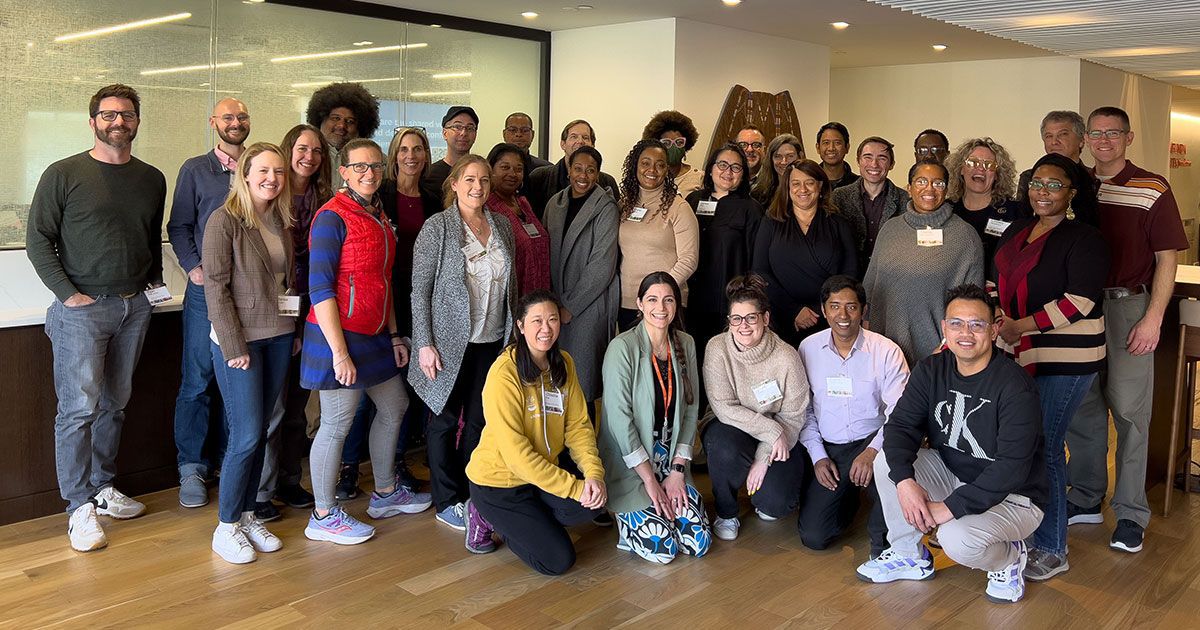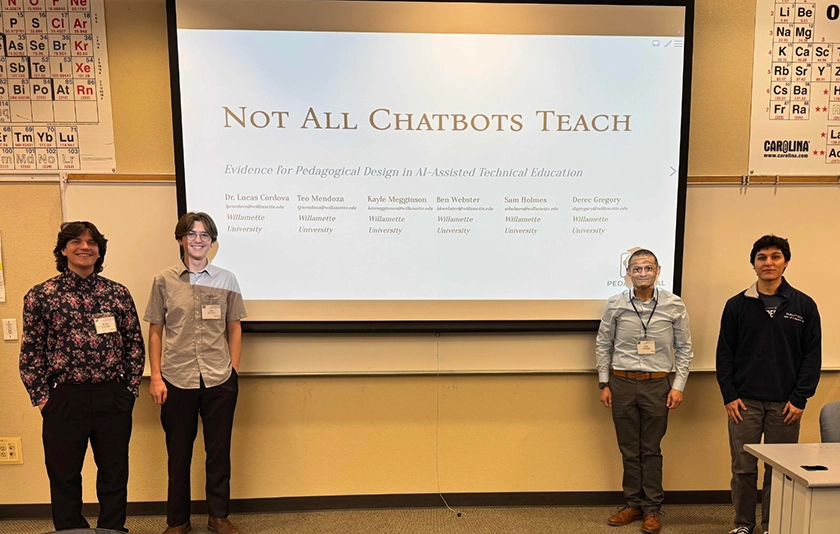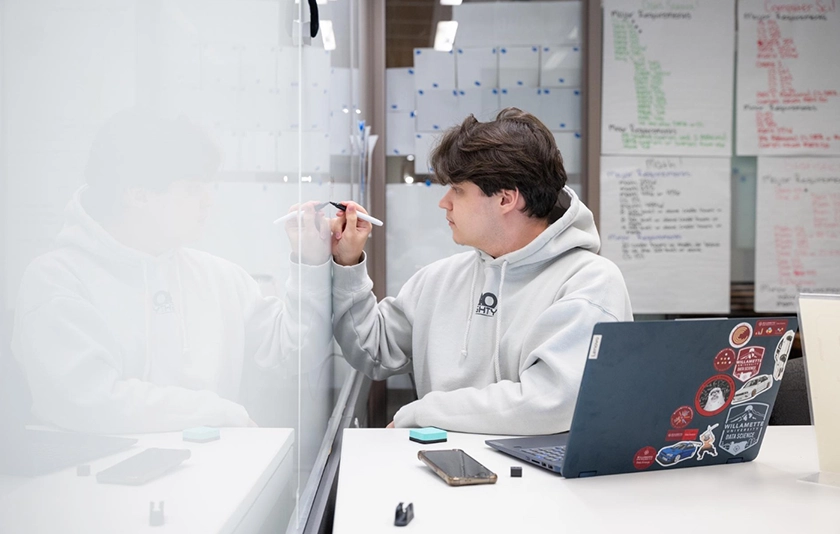
High school math teacher Colleen Smyth BA’15 MS’21 began her mission to promote data science education when she offered to develop her school’s first elective course on the subject. Now, she is continuing her efforts by joining the new Data Science Education K-12: Research to Practice Conference (DSE-K12) Launch Collective.
Comprised of 30 educators, researchers, policymakers, curriculum developers, and professional development practitioners from across the nation, the collective shares ideas and collaborates to pave the way towards robust data science education opportunities for K-12 learners. Recently, the collective convened in Washington, D.C. for a two-day session, a prelude to their inaugural DSE-K12 conference in 2025.
“The idea is to bring together folks who have a stake in data science education. By learning from each other, we hope to come away ready to start or continue making changes in the data science education space,” says Smyth, who brings a valuable perspective to the collective’s mission with her unique blend of classroom experience and an MS in Data Science from Willamette.
While earning her Bachelor’s degree in History at Willamette, she realized she enjoyed teaching math as a tutor at the Willamette Academy college access program. Her first year of teaching solidified her passion. “I really fell in love with helping kids think mathematically,” the fourth-generation public school educator shares.
“I went through the MS program knowing that I would use it to bring a data science class into my high school. Data literacy is a skill that everyone needs right now. It’s really important for students to learn how to critically analyze not just texts from their English or social studies classes, but also numbers and graphs.”
A clear example came last year when several of her students wanted to build a predictive model to help teachers create more effective groups for projects. With some initial brainstorming help from Guy F. Atkinson Associate Professor of Data Science & Marketing Jake Hoskins, her class developed a machine-learning algorithm based on survey data to gauge factors that might help build a better group. “Their project ended up being successful. I tested it in my classes and some of my colleagues did too, and we got great feedback.”
“We need to make sure kids are not just prepared for college math, but also math that they can apply in their lives,” Smyth continues. “There's a lot of academic research about the value of data science, and many teachers in various parts of the country integrate it into their classes. Data science education is a growing movement, which is a major reason for the conference.”


